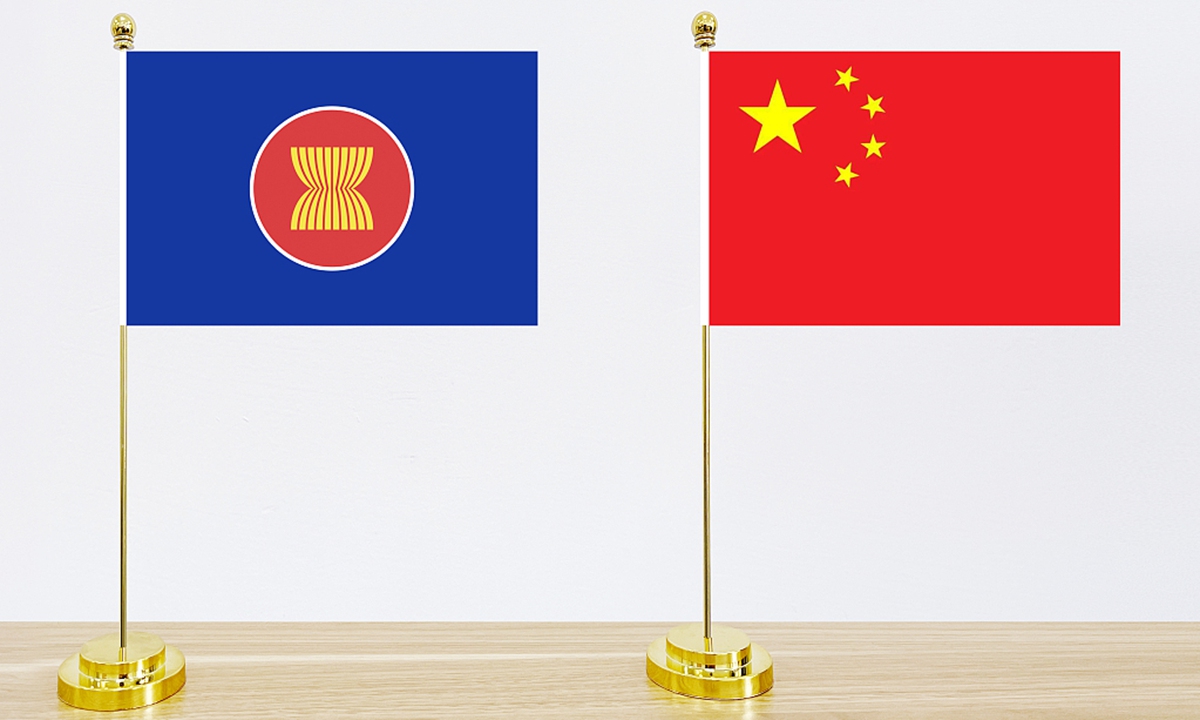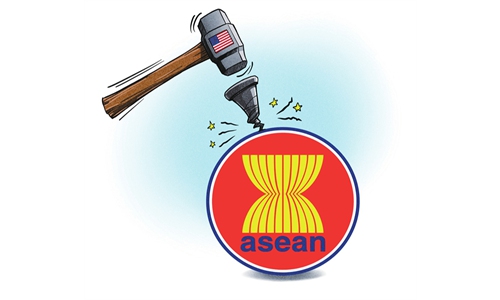COMMENTS / EXPERT ASSESSMENT
China-ASEAN cooperation will unleash unrivalled potential

Photo: VCG
At the recent special summit to commemorate the 30th anniversary of China-ASEAN Dialogue, the two sides officially announced the establishment of a China-ASEAN Comprehensive Strategic Partnership. The enhancement of bilateral relations will usher in an even brighter future for China-ASEAN cooperation and inject strong impetus to regional and global peace, stability, prosperity and development.
Since the establishment of relations between China and ASEAN in 1991, development of bilateral ties has gone through a great-leap-forward, showing that the two sides have further enhanced strategic communication and deepened mutual political trust.
Bilateral cooperation between China and ASEAN on political security, economy and trade, as well as social and cultural exchanges, has witnessed rapid development over the past three decades. Under the framework of the comprehensive strategic partnership, China and ASEAN will further expand areas of cooperation and elevate its level in the future with regional and global significance.
First, areas for cooperation will be broader and multidimensional in the future, expanding to fields such as sea, aerospace and cyberspace collaboration.
Under the wave of the fourth industrial revolution, the digital economy has opened new areas for cooperation between China and ASEAN members. The overall size of ASEAN's digital economy may reach $300 billion in 2025 with huge potential in the future according to forecasts from international institutions.
Second, the two sides are expected to improve the existing cooperative mechanisms, such as strengthening the China-ASEAN Free Trade Agreement. Similarly, both parties can jointly upgrade industrial cooperation to launch technology or capital-intensive and green agriculture cooperation projects.
In addition, the Regional Comprehensive Economic Partnership (RCEP) is set to come into effect in January 2022, which will greatly promote the liberalization and facilitation of investment and trade between China and ASEAN members. In the short term, it will expand the scale of bilateral trade and boost mutual investment. As for the medium and long term, the mega agreement will effectively allocate resources and markets across the region, deepen the integration of industrial, supply and value chains between China and ASEAN, and significantly improve the quality and level of bilateral cooperation.
Meanwhile, as China and ASEAN continue to enhance the breadth and depth of regional cooperation, some countries outside the region have begun to worry about China's growing influence and constantly play up the so-called "anxiety about China." Foreign media outlets reported that the G7 meeting, to be held in the UK in early December, will have the participation of ASEAN member countries for the first time, which has been interpreted as an attempt to counter China in the Southeast Asian region.
In fact, there is only one system in the world. It is the international system with the UN at its core and there is only one set of rules, those that govern international relations based on the UN Charter. China has always been an upholder of world peace, contributor to global development and defender of the international order.
The past 30 years of win-win cooperation between China and ASEAN show that peace is the greatest common interest, and development is the greatest common ground of converging interests and the trend of the era.
In conclusion, with the establishment of the comprehensive strategic partnership and the imminent implementation of RCEP, the potential of future cooperation between China and ASEAN will escalate and all-round cooperation will be carried out in a wider areas and at a deeper level. In the meantime, regional cooperation still faces disruptions but based on the geographical proximity and unique cultural ties, as well as the solid foundation of cooperation between China and ASEAN members over the past 30 years, bilateral cooperation will surely forge ahead despite challenges.
The article was compiled based on a commentary written by Xu Liping, Director of the Center for Southeast Asian Studies at the Chinese Academy of Social Sciences in Beijing. bizopinion@globaltimes.com.cn


